Earnest money deposits are good faith payments that homebuyers make to demonstrate serious intent to purchase a property. These deposits typically range from 1% to 3% of the purchase price in New York and New Jersey markets, serving as both buyer commitment and seller protection during real estate transactions.
For homebuyers in Staten Island, Brooklyn, Manhattan, Queens, Long Island, and New Jersey, understanding earnest money deposits protects your investment and strengthens your offer in competitive markets. This comprehensive guide covers everything you need to know about earnest money deposits in 2025, from regional requirements to protection strategies.
What Are Earnest Money Deposits?
An earnest money deposit is a good faith payment that buyers submit with their offer to demonstrate commitment to purchasing the property. Also called a “good faith deposit,” this payment shows sellers that buyers have serious intent to complete the transaction and aren’t wasting anyone’s time.
Earnest money deposits serve 3 essential purposes in real estate transactions:
- Demonstrate buyer seriousness to sellers in competitive markets
- Protect sellers from buyers who might walk away without valid reasons
- Secure the property by taking it off the market during the transaction period
Unlike down payments that go directly to lenders, earnest money deposits are held in neutral third-party escrow accounts until closing. The funds are applied toward your down payment or closing costs when the transaction completes successfully.
How Much Should You Put Down?
There are 5 key factors that determine earnest money amounts in New York and New Jersey real estate markets:
1. Local Market Conditions
- Staten Island: Typical deposits range from 1% to 3% of the purchase price
- Brooklyn competitive markets: Deposits often reach 3% to 5%
- Manhattan luxury properties: Deposits can exceed 5% to 10%
- New Jersey markets: Common range is 5% to 10% of the purchase price
2. Property Value Considerations
For a $500,000 home, expect to deposit between $5,000 and $25,000 depending on market competitiveness:
- Buyer’s markets: $5,000-$10,000 (1-2%)
- Balanced markets: $10,000-$15,000 (2-3%)
- Competitive seller’s markets: $15,000-$25,000 (3-5%)
3. Competition Level Analysis
In competitive Staten Island and Brooklyn neighborhoods, higher deposits of 3% to 5% help offers stand out against multiple bids. With Staten Island’s median home price at $710,000 in June 2025, representing a 7.6% increase from last year, substantial deposits demonstrate financial strength.
4. Regional Customs and Practices
New Jersey commonly uses a two-step deposit process: an initial $1,000 good faith deposit followed by the remaining 5-10% within days after contract signing. This approach reduces initial financial exposure while maintaining seller confidence.
5. Property Type Specifics
- Single-family homes: Standard percentage-based deposits
- Condominiums: Often require board approval contingencies
- Commercial properties: Deposits typically range 5% to 10%
- New construction: May require up to 10% of purchase price
When Is Earnest Money Refundable?
You can recover your earnest money deposit under 7 main contingency scenarios outlined in your purchase agreement:
1. Home Inspection Contingency
Structural issues, safety concerns, and major repairs discovered during professional inspections allow buyers to recover deposits. Common refundable situations include:
- Foundation problems requiring expensive remediation
- Electrical system violations of safety codes
- HVAC system failures needing complete replacement
- Roofing damage requiring significant repairs
2. Appraisal Contingency
Property values below the purchase price trigger appraisal contingencies. If the home appraisal comes in lower than your offer, you can either renegotiate the price or walk away with your deposit.
3. Financing Contingency
Mortgage approval failures protect buyers through financing contingencies, including:
- Credit score changes affecting loan qualification
- Income documentation issues preventing approval
- Interest rate increases above agreed-upon limits
- Debt-to-income ratio problems discovered during underwriting
4. Title Contingency
Clear title issues including liens, easements, or ownership disputes allow deposit recovery when sellers cannot provide marketable title.
5. Home Sale Contingency
Buyers’ current homes that don’t sell before closing trigger home sale contingencies, protecting deposits when timing doesn’t align.
6. Due Diligence Contingency
General research periods typically lasting 7 to 14 days allow buyers to investigate any property-related concerns before full commitment.
7. Specific Performance Contingency
Seller failures to meet contract terms such as agreed-upon repairs or disclosure requirements protect buyer deposits.
Protecting Your Earnest Money Deposit
To protect your earnest money deposit, you must understand contract terms, meet deadlines, and work with reputable escrow agents. Follow these 8 essential protection strategies:
Verification and Documentation Steps
- Verify escrow company credentials through state licensing databases
- Review contract contingencies carefully with qualified real estate attorneys
- Meet all contractual deadlines using calendar tracking systems
- Document all communications in writing for legal protection
Professional Support Network
- Work with experienced Staten Island real estate agents who understand local market customs
- Engage qualified real estate attorneys for contract review and guidance
- Choose reputable title companies with proper insurance coverage
- Maintain clear communication channels with all transaction parties
State-Specific Regulations
New York Earnest Money Requirements
New York real estate transactions follow specific regulations governing earnest money deposits:
Timeline Requirements: Earnest money is typically submitted within 1-3 business days after the purchase agreement is signed by both parties.
Escrow Requirements: Deposits must be held by licensed real estate brokers, attorneys, or title companies in interest-bearing escrow accounts.
Dispute Resolution: New York State law provides specific procedures for earnest money disputes, including 20-day notification periods and interpleader action requirements.
New Jersey Earnest Money Regulations
New Jersey follows distinctive deposit practices that differ from New York:
Two-Step Process: Initial good faith deposits of $1,000-$5,000 followed by additional earnest money of 5-10% within days after contract signing.
Escrow Management: Deposits are held by buyer’s attorneys, real estate brokerages, or neutral third-party escrow agents.
Legal Protection: New Jersey law requires deposits to be held in trust accounts with specific crime-fraud and cyber security insurance protections.
Common Mistakes to Avoid
Avoid these 6 costly earnest money mistakes that put deposits at risk:
Contract and Timeline Errors
- Missing inspection deadlines can forfeit contingency protections
- Failing to meet financing deadlines may result in deposit loss
- Inadequate contingency language leaves buyers vulnerable to forfeiture
Wire Fraud Prevention
Wire fraud targeting earnest money deposits has increased significantly. Verify all wire instructions through phone calls to known parties before transferring funds, if you want to avoid fraudulent schemes.
Documentation Problems
- Verbal agreements aren’t legally enforceable in real estate transactions
- Incomplete paperwork can delay or invalidate contingency protections
- Poor record keeping complicates dispute resolution processes
Regional Market Analysis
Staten Island Market Conditions
Staten Island’s real estate market shows strong activity with 609 homes for sale at a median price of $710,000, representing a 7.6% increase from last year. Competitive market conditions require deposits of 2% to 3% to secure desirable properties.
Neighborhood Variations:
- Tottenville luxury markets: Higher deposits often necessary
- New Dorp balanced markets: Standard deposit percentages accepted
- Mariners Harbor value markets: Lower deposits may suffice
Brooklyn and Manhattan Dynamics
Brooklyn and Manhattan competitive markets require strategic deposit approaches. Commercial properties in NYC typically require 10% deposits, while residential properties range from 5-10% in highly competitive areas.
New Jersey Market Characteristics
New Jersey’s earnest money deposits commonly range from 5% to 10% of the purchase price, reflecting the state’s attorney-driven transaction process and consumer protection emphasis.
Dispute Resolution Process
Earnest money disputes require structured resolution approaches when buyers and sellers disagree:
Mediation Procedures
- Neutral third-party mediators help resolve conflicts outside court systems
- Cost-effective solutions preserve business relationships between parties
- Confidential proceedings protect sensitive financial information
Arbitration Options
- Binding arbitration decisions provide final resolution authority
- Faster proceedings compared to traditional litigation processes
- Expert arbitrators with real estate transaction experience
Legal Action Requirements
Contact qualified real estate attorneys for contract disputes, if you want comprehensive legal protection. Complex disputes may require formal litigation when other resolution methods fail.
Tax Implications of Earnest Money
Earnest money deposits carry specific tax considerations often overlooked by buyers:
Successful Transactions
- Applied deposits toward down payments aren’t separately taxable
- Interest earnings in escrow accounts may be taxable income
- Record-keeping requirements for tax documentation purposes
Forfeited Deposits
- Lost deposits may qualify as casualty loss deductions
- Timing requirements for claiming tax benefits
- Professional tax advice recommended for complex situations
Wire Fraud Prevention Strategies
Protect earnest money deposits from cyber criminals through these 5 essential security measures:
- Verify wire instructions through confirmed phone numbers
- Question unexpected changes to payment instructions
- Use secure communication channels for sensitive information
- Double-check recipient information before authorizing transfers
- Report suspicious activity immediately to authorities
Working with Robert DeFalco Realty
Robert DeFalco Realty’s experienced agents provide expert guidance through earnest money deposit processes. With over 30 years serving Staten Island, Brooklyn, Manhattan, Queens, Long Island, and New Jersey markets, our team understands local customs and regulatory requirements.
Our comprehensive services include:
- Market analysis for appropriate deposit amounts
- Contract negotiation protecting buyer interests
- Escrow coordination with trusted third parties
- Timeline management ensuring deadline compliance
Whether you’re exploring Staten Island commercial opportunities or residential purchases, our multiple office locations provide convenient access to professional real estate services.
Frequently Asked Questions
How much earnest money do I need for a home in Staten Island?
Earnest money deposits in Staten Island typically range from 1% to 3% of the purchase price, with most buyers depositing around 2% in competitive markets. For the current median home price of $710,000, expect deposits between $7,100 and $21,300.
Can I get my earnest money back if the inspection fails in New York?
Yes, you can recover your earnest money deposit if the home inspection reveals significant issues and you have an inspection contingency in your purchase agreement. Common recoverable situations include structural defects, safety violations, and major system failures.
Who holds earnest money deposits in Brooklyn real estate transactions?
Earnest money deposits in Brooklyn are held by neutral third parties, typically title companies, real estate brokerages, or real estate attorneys in escrow accounts. Never give deposits directly to sellers.
What happens to earnest money at closing in New Jersey?
At closing in New Jersey, your earnest money deposit is applied toward your down payment or closing costs as specified in your purchase agreement. The funds reduce the cash needed at closing.
How long do I have for home inspection in Staten Island?
Most Staten Island purchase agreements allow 7 to 14 days for home inspections, though this timeline can be negotiated based on market conditions. Missing inspection deadlines can forfeit contingency protections.
Can sellers keep earnest money in competitive New York markets?
Sellers can keep earnest money deposits only if buyers breach the contract without valid contingency protections or fail to meet contractual deadlines. Contingencies provide essential buyer protections.
Next Steps for Homebuyers
Successful earnest money management requires professional guidance and careful planning. Consider these action items:
- Consult with experienced real estate agents familiar with local market customs
- Engage qualified real estate attorneys for contract review and protection
- Research reputable escrow companies with proper insurance coverage
- Understand specific contingency requirements in your target markets
- Prepare liquid funds for timely deposit submission
Ready to start your homebuying journey? Contact Robert DeFalco Realty today for expert guidance through earnest money deposits and the entire real estate transaction process. Our experienced team ensures your investment is protected while maximizing your chances of securing your dream home.
For additional property research, explore our guide on finding property liens in Staten Island to ensure comprehensive due diligence during your home purchase.
External Resources for Further Reading:
- National Association of Realtors – Earnest Money Guidelines
- Wells Fargo – Earnest Money Guide
- FTC Consumer Protection Information
This article provides general information and should not be considered legal advice. Consult qualified professionals for guidance specific to your situation.

